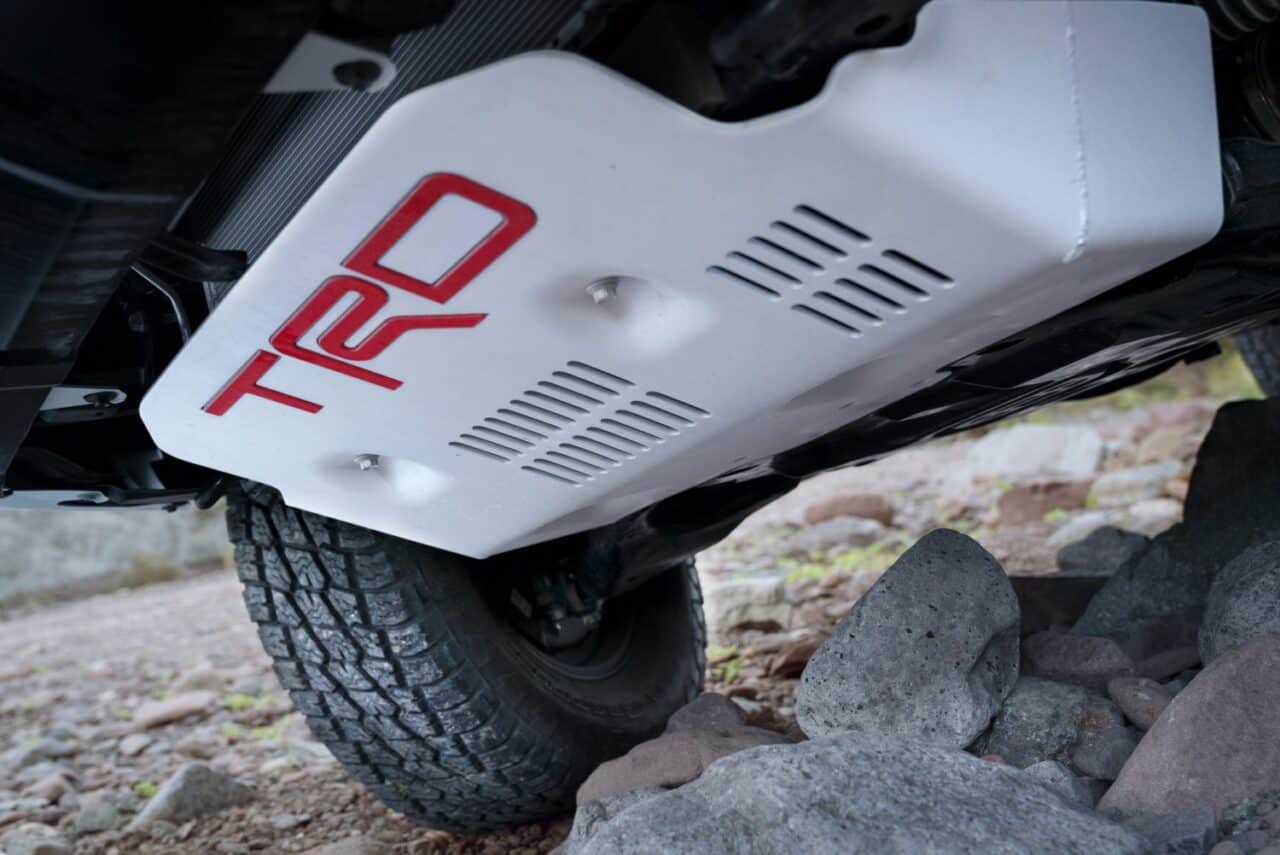Used Toyota 4Runner – How Many Miles Are Too Many?
Thinking about buying a high milage Toyota 4Runner? In this article we will cover how many miles you can likely get from a used 4Runner and help you determine just how many miles are too many.

Toyota 4Runner is one of the most durable vehicles in the market. With proper care and maintenance, you can get up to 250k miles from a Toyota 4Runner and maybe more.
You have probably seen an old Toyota 4Runner model that still sounds good. Most of the time, these vehicles are still able to cruise off-road. The 4Runner powerful engine options are also very durable and take a long time to develop any problem.
But first, you have to maintain your 4Runner for it to last. Toyota always provides buyers with information on maintenance and repairs and which spare part’s brands are approved for your 4Runner. If you want to get 250k miles with your 4Runner, you must adhere to the instructions provided by Toyota.
How Can I Make My Toyota 4Runnner Last for 250K Miles?
The Toyota 4Runner is a durable SUV, but you have to take care of it so that it may give you a long-lasting service. The following are ways to keep Toyota 4Runner in good shape after 250k miles of driving,
Drive smoothly and carefully most of the time
It is essential to know how various controls in your vehicle work. This will allow you to understand how to use them without causing damage. Being so aggressive on your steering wheel, gearbox, and pedals may have long term damage to your vehicle.
Driving over potholes and bumps at high speeds wears out your suspension, shocks, steering rack and may also affect your engine suspension and mountings.
When the body of your Toyota 4Runner is exposed to scratches and dents, it will start to rust quickly, reducing the life of your vehicle. Ensure you drive safely to avoid an accident that may reduce the lifespan of your automobile.
Change your Filters Regularly
Air filters and fuel filters protect your 4Runner engine from harmful substances that may permanently damage your engine. Replacing them frequently will increase your engine life and improve performance. It is also crucial to replace your filters with good quality ones.
OEM filters will serve you well since they are approved and recommended by Toyota. Toyota has always been recommending the use of TRD air filters and oil filters for the 4Runner. These filters prevent even the tiniest particles from infiltrating into your engine. Cheap, low-quality filters would cause unrepairable damage to your engine.
Replace Spark Plugs and Leads After the Recommended Mileage
Spark plugs are essential parts of your 4Runner engine. They are responsible for igniting fuel during the compression stroke. When spark plugs are faulty, damaged, or worn out, they will make the engine to misfire and vibrate when idling.
Rough idling and vibration will wear out and damage the pistons, camshafts, and crankshaft reducing your engine lifespan. Always use the right quality of spark plugs and lead to prolonging your engine life.
Use Recommended Engine Oil and Coolant
Toyota has recommended several engine oil and coolant for the 4Runner engines. Engine oil is a significant fluid in the engine’s operation.
Engine oil lubricates moving parts, cools the engine by carrying away heat from the combustion chamber, protect engine parts from corrosion, and keeps your 4Runner engine clean. Using the right engine oil gives your engine a long life.
It also prevents engine knocking, improves performance and fuel economy. Engine coolants cool the engine. It should contain anti-freeze and should not corrode the engine.
Using good quality engine oil, tested and approved by Toyota, will significantly improve your engine life and make your vehicle last up to 250k miles.
Adhere to Toyota 4Runner Scheduled Maintenance
Toyota provides buyers with a maintenance schedule that breaks down the parts that should be inspected or replaced after a specific mileage.
Following this schedule will improve your engine lifespan and reduce maintenance costs. There are three types of service. These are minor service, intermediate service, and major service.
Minor servicing is done after 5,000 miles. Minor servicing includes:
- Replacement of engine oil and oil filters
- Replace drain plug gasket
- Check tire conditions and tread depth
- Set tire pressure to correct PSI
- Wiper inserts and blades inspection
- Check if all light bulbs are working
- Brake linings/drums and brake pads or disc inspection
- Check Engine oil, engine coolant, gearbox oil level
Intermediate service includes all the activities done on the minor service plus:
- Ball Joints and dust covers inspection
- Driveshaft boots inspection
- Check conditions of brake fluid
- Suspension and suspension parts inspection
- Lubricate Propeller shaft

Major service all activities on the minor and Intermediate service plus:
- Re-torque propeller shaft bolt
- Fuel cap gaskets and fuel lines inspection
- Inspect the condition of the fuel tank, vapor vent, and system hoses
- Inspection of ignition wires
- Replace spark plugs
- Replace engine oil
- Replace air filter
- Replace cabin air filter
Your vehicle will attain the 200k mileage if these routine services are done.
Don’t Ignore Fault Codes and Warning Messages.
Most people tend to ignore warning messages and fault codes on the dash. Such warning lights only appear on your dashboard if there is a problem detected. It is essential to take your vehicle for scanning as soon as these messages display on the dashboard screen.
What could start as a warning light would end up being a more serious problem that would cost you lots of money or entirely damage your engine?
Know Service Intervals of All Parts
Service is not limited to what is done in maintenance and service shops. Always consult your owner’s manual to check how long each part can last. Fluids that are normally neglected on the 4Runner include power steering fluid, transmission fluid, brake fluid, and differential fluid.
What are Age-related Issues with Toyota 4Runner?
Age-related issues in Toyota 4Runner depend on the type of engine is equipped with and the model year. The 4runners with 4.0-liter V-6 engines would experience wrong engine timing due to worn out timing belts after 100,000 miles. The water pump pulley will also produce a squeaking sound, and it should be replaced simultaneously with the timing belt.
The 2003-2009 Toyota 4Runner models with V-6 interference Engine is known to blow its head gasket after 100,000 miles. These models will also experience head gaskets failures and leaks.
The 2003-2005 4Runners will experience locking front brake calipers after 150,000 miles. Also, owners of these 4Runners have reported experiencing warping and sticking of brake pads and rotors after 90,000 miles.
The 2003-2009 4th Gen 4Runner with 4.7-liter V8 engines would suffer exhaust manifold leaks, damaged engine oxygen sensors, and strong sulfur Odor in the cabin.
The exhaust manifold starts to crack after 100K miles. This cracking is caused by the weight of the catalytic converter. It is placed close to the engine to reduce cold-start emissions.
Over repeated heating and cooling cycles over a long period, the manifold cracks. The 2003 Toyota 4 Runner will experience suspension problems due to wear and tear after 142,000 miles, and the whole suspension system has to be replaced.
Owners of 2007 4Runner have complained about differential leaks after 150,000 miles, while one consumer had to replace the whole differential after 200,00 miles.

How Reliable is Toyota 4Runner?
Regardless of which model year or engine under the hood, the 4Runner is a very reliable SU. Its off-road capability, fuel economy, and maintenance requirement are unmatched.
It is among the most reliable SUV in the market. Some owners have owned the 4Runners for years without experiencing significant problems. It is also available with plenty of powertrains. This allows buyers to choose whichever is suitable to meet their needs.
More 4Runner Resources
If you enjoyed reading about the Toyota 4Runner, you will surely appreciate my other related articles. These articles delve deeper into specific aspects of the 4Runner such as its off-road capabilities, interior design and technology features.
Additionally, I have compared the 4Runner to other popular SUVs in its class to help you make an informed decision about your next vehicle purchase. Give them a read; I am sure you will find them as interesting and informative as the first article.
Conclusion
If you need an SUV that would give you years of service without experiencing significant problems, the Toyota 4Runner would be your best choice. Whether you want to use it for off-road adventures or commuting to work, you won’t be disappointed with this SUV.



